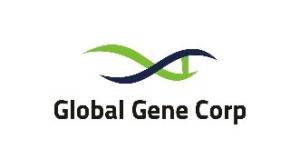Guest blog: 'Capturing the true diversity of genomic data' - By Global Gene Corp
Genomic data is increasingly used in healthcare, yet the data’s European ancestry bias means that it is unrepresentative of the global population as a whole. In this blog, BIA member Global Gene Corp explores this issue and how the company is working to address the problem.

In April 2003, as part of a 13-year, $2.7 billion effort by the human genome project consortium, the first human genome was sequenced. A new era of genomic medicine was expected with the phenomenal promise of precision healthcare- the right drug, at the right time, in the right dose to the right patient.
Fast-forward 15 years, while much progress has been made the achievement of this promise is still hindered by the significant genomic data bias. A look at publicly available global genomic information in 2016 showed that only 19% of the data was of non-European ancestry. There are huge gaps, especially a severe lack of ethnic diversity, in the genomic datasets and insights available from Asia, Africa & Latin America. India, with roughly one fifth of the world’s population is represented by less than 1% of the world’s genomic information. 60% of the world’s population is represented by no more than 5% of the data. This lack of diversity matters – whether in drug development, discovery or patient stratification, or indeed to realise the promise of precision medicine.
Solving this genomic data and insights gap is the mission and focus of Global Gene Corp (GGC). GGC is an innovative genomics insights and applications company with a vision to democratise healthcare through genomics. The company is focussed on generating insights from Asia, Middle East, Latin America and Africa, and works in collaboration with pharma & biotech companies, research & academic institutions, and governments. GGC’s R&D centre is based on the Wellcome Genome Campus, Hinxton, alongside the world leading Sanger Institute and EMBL-EBI, a site responsible for sequencing one third of the human genome, with presence in Boston, Singapore and India.

BioData Innovation Centre, home to GGC
A scientific team of global repute leads the delivery of GGC’s vision and its execution is supported by extensive and innovative use of technologies such as AI/Machine Learning, cloud compute, and mobile technologies. As expected, GGC uses AI/machine learning algorithms to generate insights from the vast amount of data. In many regions of operation, where Electronic Health Records (EHR) do not exist, the Company uses proprietary mobile technology based applications that facilitate the collection, digitising and standardising of phenotypic information.
GGC is proud to work with world-leading collaborators on a range of areas including drug discovery and biomarker identification, contributing to common-complex, as well as, rare-disease research and pharmaceutical discovery, executing national initiatives for delivery of precision medicine. GGC has established the largest genomic sequencing programme for populations from Indian sub-continents with a view to understand allelic architecture and specified diseases. Pioneering studies such as a study of cancers in the South Asian population are underway.
The company’s pioneering work has also received recognition from many sources, such as BBC’s “The power of a billion: India’s genomic revolution”, Financial Times, “When data biases hold a potentially deadly flaw”, MIT Technology Review’s, “Taking genomics data global” and “A Massive Gene Sequencing Effort is Coming to India”, as well had been named as “The Next Big Thing” by Cambridge Network. GGC is supported by UK Department of International Trade (UK DIT), EDB Singapore and Invest India.
GGC’s focus is on delivering its mission to capture the true richness and diversity of humanity so that everyone and the generations to come, can benefit from the realisation of the promise of genomics.
Find out about the BIA’s work in Genomics by taking a look at our new Genomics Advisory Committee (GAC).
.png)
.png)